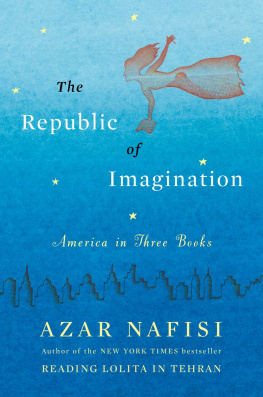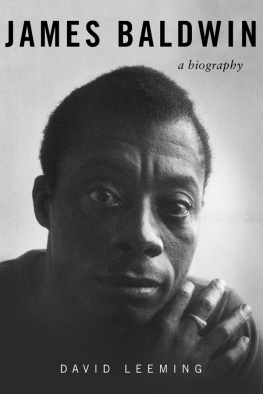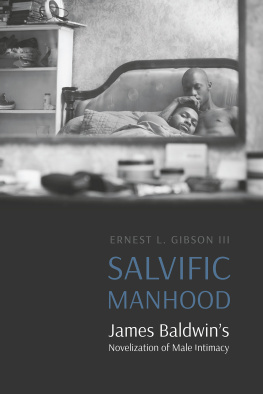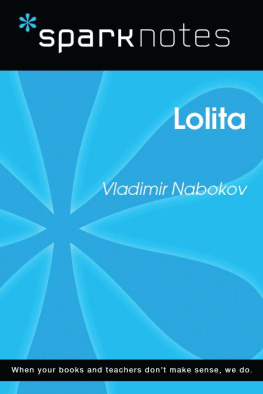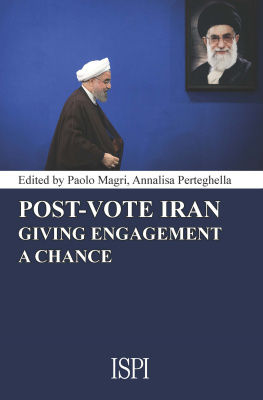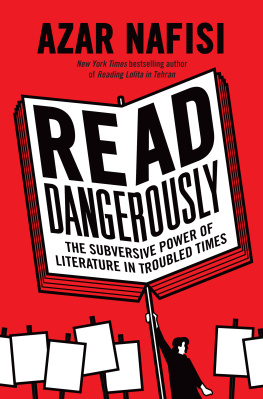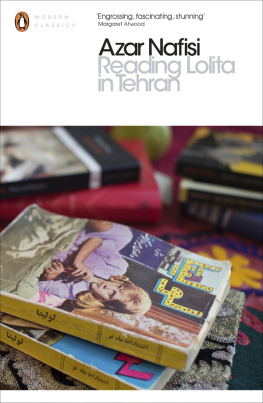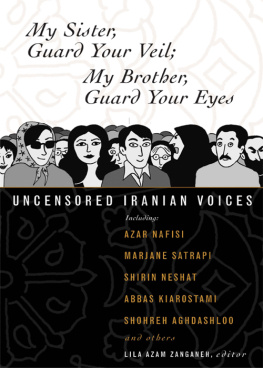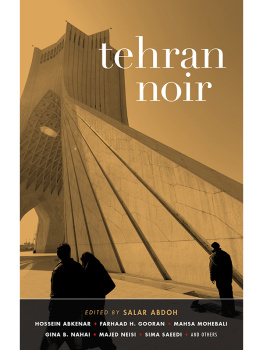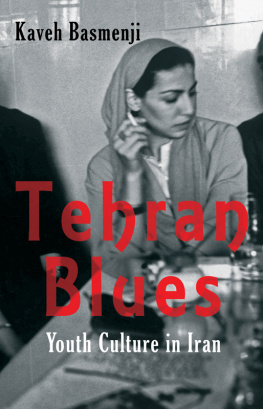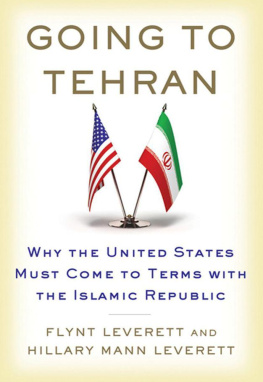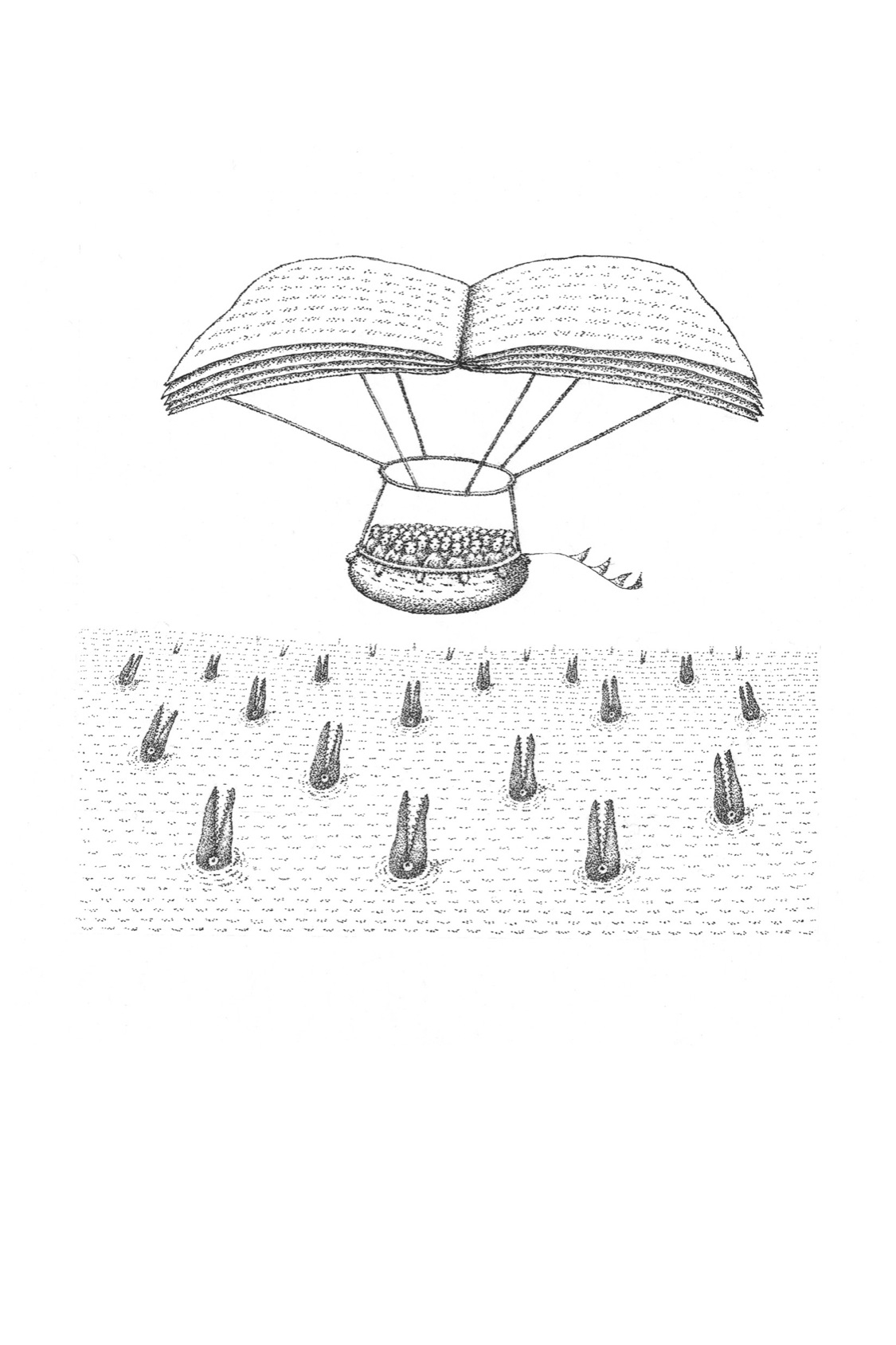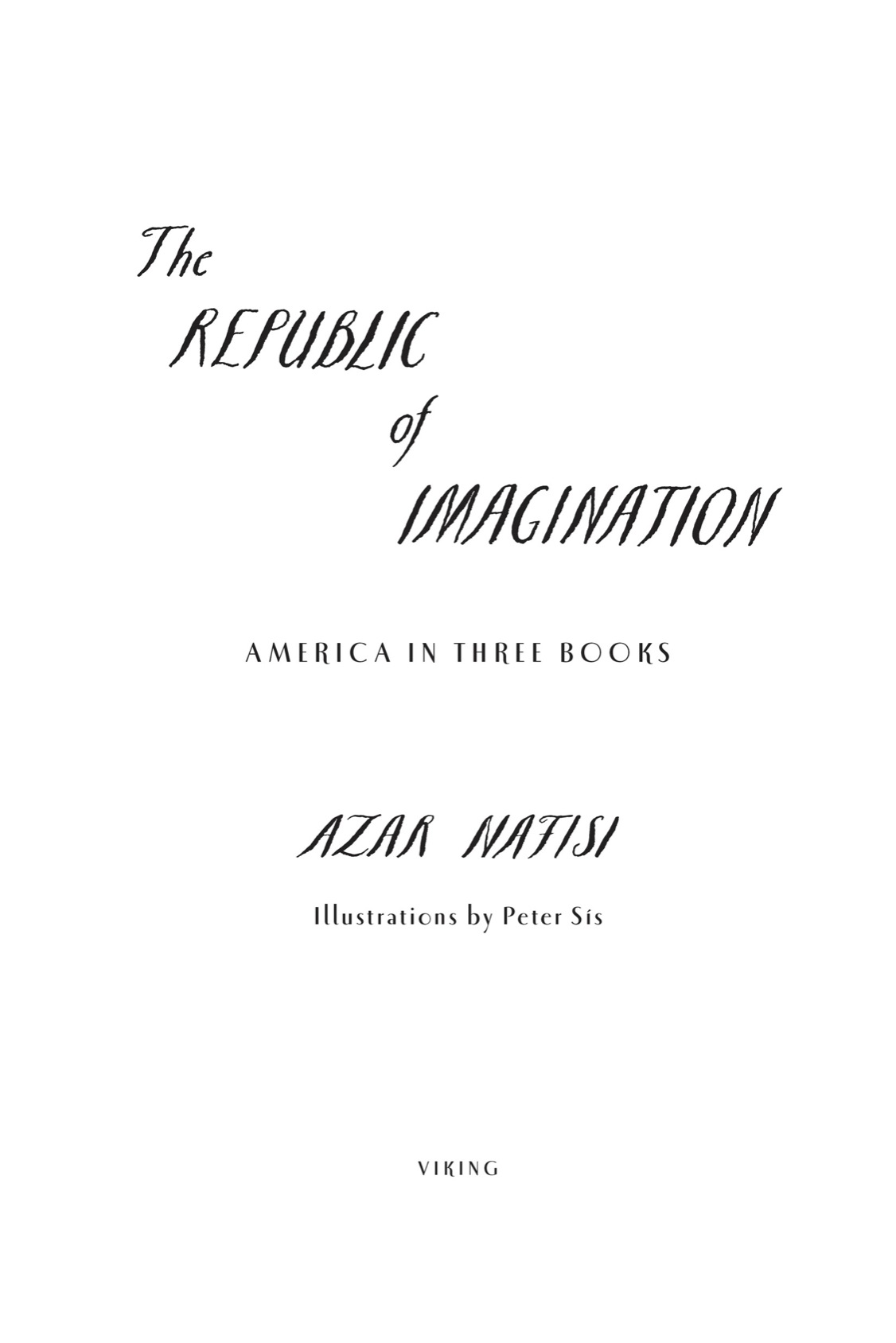ALSO BY AZAR NAFISI
Reading Lolita in Tehran
Things Ive Been Silent About
Anti-Terra: A Critical Study of Vladimir Nabokovs Novels
BiBi and the Green Voice
VIKING
Published by the Penguin Group
Penguin Group (USA) LLC
375 Hudson Street
New York, New York 10014

USA | Canada | UK | Ireland | Australia | New Zealand | India | South Africa | China
penguin.com
A Penguin Random House Company
First published by Viking Penguin, a member of Penguin Group (USA) LLC, 2014
Copyright 2014 by Azar Nafisi
Penguin supports copyright. Copyright fuels creativity, encourages diverse voices, promotes free speech, and creates a vibrant culture. Thank you for buying an authorized edition of this book and for complying with copyright laws by not reproducing, scanning, or distributing any part of it in any form without permission. You are supporting writers and allowing Penguin to continue to publish books for every reader.
Illustrations by Peter Ss. Copyright 2014 by Peter Ss.
Grateful acknowledgment is made for permission to reprint the following copyrighted works:
Copyright 1926, 1954, 1991 by the Trustees for the E. E. Cummings Trust. Copyright 1985 by George James Firmage. From Complete Poems: 19041962 by E. E. Cummings, edited by George J. Firmage. Used by permission of Liveright Publishing Corporation.
Excerpt from from The Collected Poems of Langston Hughes, edited by Arnold Rampersad with David Roessel, Associate Editor. Copyright 1994 by the Estate of Langston Hughes. Used by permission of Alfred A. Knopf, an imprint of the Knopf Doubleday Publishing Group, a division of Random House LLC and Harold Ober Associates Incorporated. All rights reserved.
ISBN: 978-0-698-17033-9
Penguin is committed to publishing works of quality and integrity. In that spirit, we are proud to offer this book to our readers; however, the story, the experiences, and the words are the authors alone.
Version_1
To my family, Bijan, Negar and Dara Naderi
And in memory of my friend Farah Ebrahimi
Let America be America again,
Let it be the dream it used to be.
Let it be the pioneer on the plain
Seeking a home where he himself is free.
...
O, yes,
I say it plain,
America was never America to me,
And yet I swear this oath
America will be!
Langston Hughes, Let America Be America Again
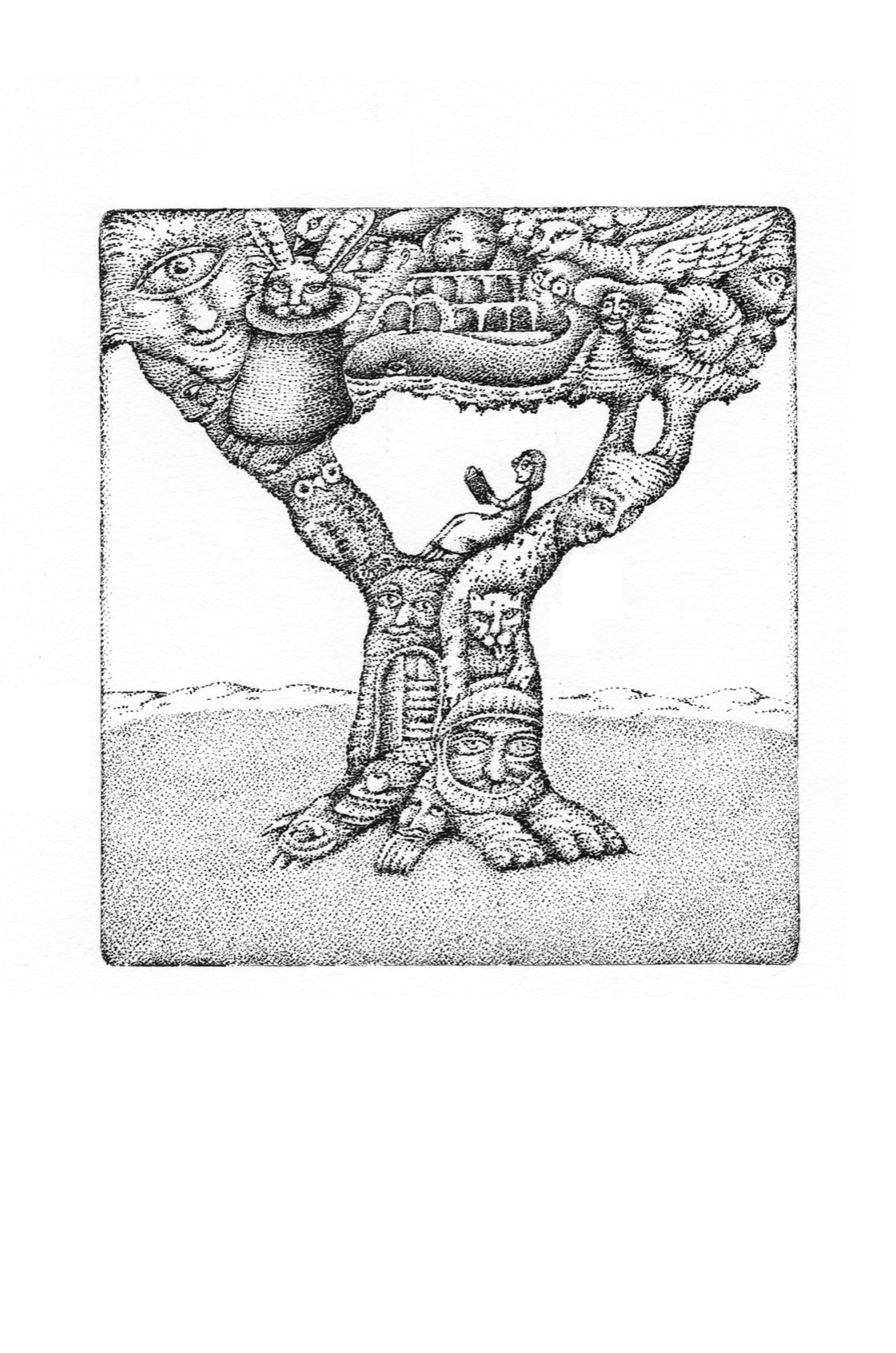
Introduction
A few years ago I was in Seattle signing books at a marvelous independent bookstore called Elliott Bay when I noticed a young man standing by the table, watching me. When the line had dwindled, he finally addressed me. He said he was passing through Seattle, visiting a friend, and he wanted me to know he had lived in Iran until recently. Its useless, he said, your talk about books. These people are different from ustheyre from another world. They dont care about books and such things. Its not like Iran, where we were crazy enough to xerox hundreds of pages of books like Madame Bovary and A Farewell to Arms.
Before I had time to think of a response, he went on to tell me about the first time he had been arrested, late at night during one of the usual random car searches by the revolutionary militia. He had been taken into custody with his two friends, more for their insolence than for the contraband tapes found in the car. They were kept for forty-eight hours and then released without explanation, after being fined and flogged. There was no denying that a normal day in the life of a young Iranian is very different from that of most young Americans.
I had heard such stories many times before, but there was something unusual about this young man. He spoke in a casual tone that made what he said all the more poignant, as if he were trying to negate the event by describing it in a nonchalant manner. He said that during the floggings, it was not just the pain but the humiliation that had made him feel for a few moments as if he were leaving his body and becoming a ghost, watching himself being flogged from a distance. It made it easier, he added, as a ghost.
I know what you mean, I said. It was a good survival technique.
It still is, he said, with his knowing smile.
By now there was a line again, patiently and politely waiting, and I made a silly remark to the effect that perhaps America was a land of ghosts anyway. He did not react to that. Instead he handed me a Post-it note and said, I dont have a book. This is for a friend.
I signed my name on that orange Post-it and gingerly handed him my card. Lets be in touch, I said. He took both the Post-it and the card and of course he never did get in touch. But I never lost track of him completely, because that young man, with his serene smile and his words, revisits me in strange places and seemingly unrelated encounters. He has stayed with me partly because I felt then, as I do now, that I had disappointed himsomething was expected of me that was not fulfilled. When I realized he was going to haunt me for the foreseeable future, I decided to give him a name: Ramin, in honor of another young man I had known in Iran who told me about a similar experience. All these ghostshow do we fulfill our responsibilities toward them?
Thinking over what Ramin had said, I found it intriguing that he had suggested not that Americans did not understand our books but that they didnt understand their own. In an oblique way, he had made it seem as if Western literature belonged more to the hankering souls of the Islamic Republic of Iran than to the inhabitants of the land that had given birth to them. How could this be? And yet it is true that people who brave censorship, jail and torture to gain access to books or music or movies or works of art tend to hold the whole enterprise in an entirely different light.
These people, he had said with his inscrutable smile, are different from us. They dont care about books and such things. Every once in a while, after a talk, during a book signing or over coffee with an old friend, this point will come up, usually as a question: Dont you think that literature and books were so important in Iran because there was so much repression there? And dont you think that in a democracy there is no such urgent need for them?
My impulse now, as then, is to disagree. The majority of people in this country who haunt bookstores, go to readings and book festivals or simply read in the privacy of their homes are not traumatized exiles. Many have seldom left their hometown or state, but does this mean that they do not dream, that they have no fears, that they dont feel pain and anguish and yearn for a life of meaning? Stories are not mere flights of fantasy or instruments of political power and control. They link us to our past, provide us with critical insight into the present and enable us to envision our lives not just as they are but as they should be or might become. Imaginative knowledge is not something you have today and discard tomorrow. It is a way of perceiving the world and relating to it. Primo Levi once said, I write in order to rejoin the community of mankind. Reading is a private act, but it joins us across continents and time.

